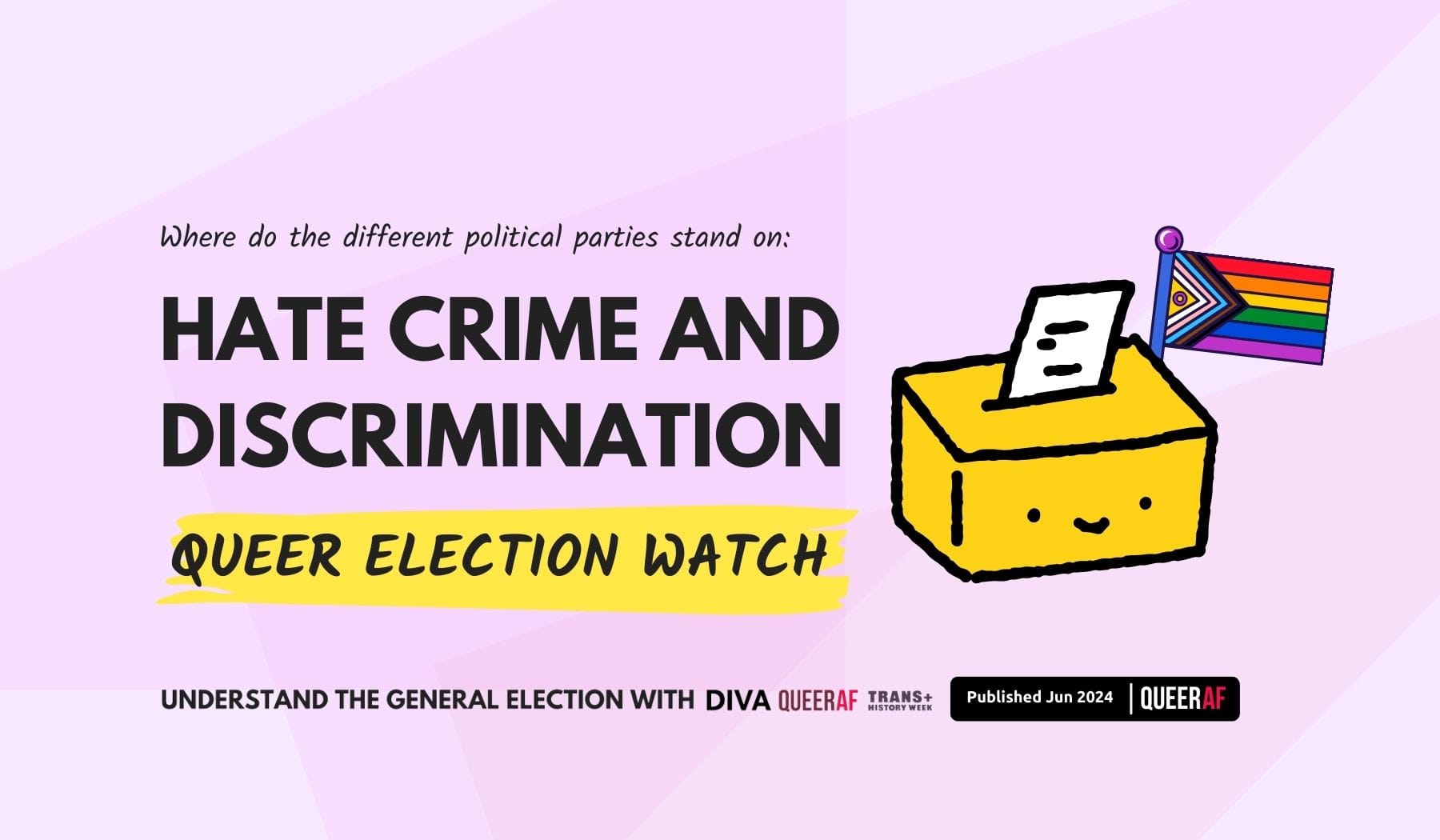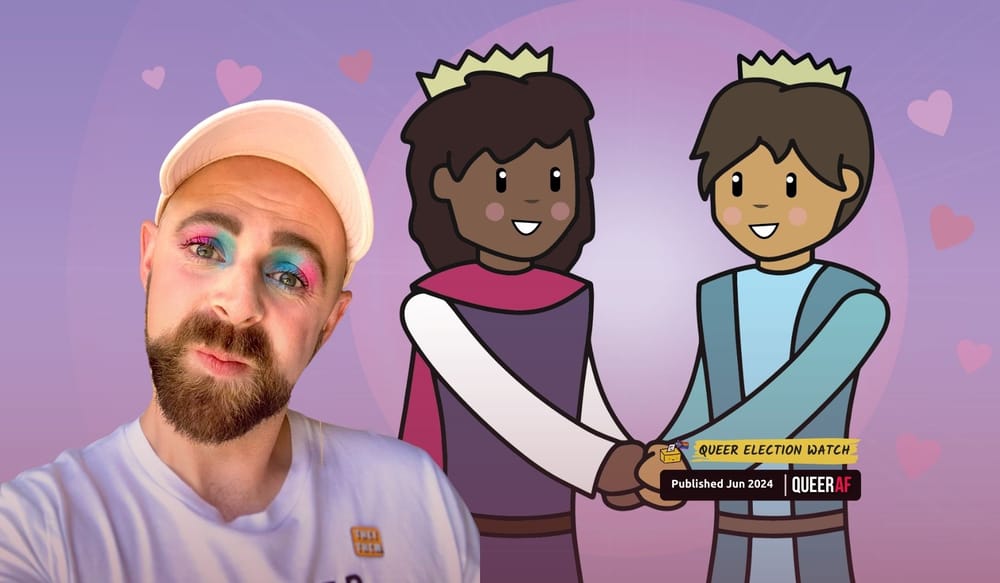
What are the big issues that impact safety for LGBTQIA+ people?
Over recent years, two critical safety issues for LGBTQIA+ communities have generated significant media and political attention: hate crime and protection from discrimination.
Hate crimes targeting LGBTQIA+ people have been rising for most of the last decade, with a particularly sharp rise in hate crimes targeting the trans community. Since 2012/13, there has been a 465% rise in hate crime targeting people because of their sexual orientation and a 1,211% rise in hate crimes targeting people because of their gender identity.
Even this represents an undercount: Crimes motivated by misogyny aren’t recorded as hate crimes, and of course, many LGBTQIA+ people simply don’t report to the police at all.
In 2021, the Law Commission proposed treating all forms of hate crime equally under the law (currently, hate crimes based on race and faith attract longer sentences) and also proposed hate crime legislation be amended to provide more expansive protections for trans+ communities by introducing the term ‘“transgender or gender diverse identity”’. These changes have not yet been implemented.
Protection from discrimination under the law has been a stable and steadily progressing area of LGBTQIA+ rights over recent years.
However, political rhetoric about changing the Equality Act, repealing the Human Rights Act, or leaving the European Convention on Human Rights has become increasingly prevalent. All of these changes would have a devastating impact on the human rights and safety of LGBTQIA+ people.
Where do the different political parties stand on hate crime and protection from discrimination?
🔵 Conservatives
The Conservative manifesto does not mention hate crime.
In addition, the Conservative government has had three years to implement the Law Commission’s recommendations on hate crime and did not do so. When it comes to protection from discrimination, the Conservative manifesto is clear that the party intends to reduce protections from discrimination. They make two specific proposals, both targeting the trans community.
The first proposal is to amend the Equality Act to redefine the protected characteristic of sex, limiting it to “biological sex”. Whether or not this is practicable legally, the goal of the policy would be to exclude trans people from the services, settings and facilities the Equality Act regulates. The practical impact of this would be devastating for trans+ people’s ability to live their day to day lives.
The second proposal is to amend the NHS constitution to “recognises every patient’s right to request single-sex accommodation and same-sex intimate care”. As with the proposed changes to the Equality Act, it is not clear if this could be implemented in practice, or whether it is compatible with equality and human rights legislation. The practical impact would be harmful to trans+ patients and trans+ staff working in the NHS.
In addition to this, Conservative leaders have consistently talked about repealing the Human Rights Act, withdrawing the UK from the European Convention on Human Rights and replacing it with a ‘British Bill of Rights’ for several years.
Analysis: If elected, the Conservatives would not extend protections provided by hate crime legislation and would be unlikely to treat rising LGBTQIA+ hate as a policy priority.It is also clear that the Conservatives would seek to remove existing rights from trans+ people in critical areas, making some forms of discriminatory treatment legal.
🔴 Labour
Labour has committed in its manifesto to implementing the recommendations of the Law Commission, changing the law so all kinds of hate crime including hate crime targeting LGBTQIA+ communities is treated equally in the criminal justice system. It’s not clear whether Labour proposes to implement Law Commission recommendations in full, for instance by amending existing hate crime legislation to protect all trans+ and gender diverse people.
Labour has also stated in its manifesto that it is ‘proud of’ the Equality Act, while emphasising its support for the continued use of the exemptions that allow single sex services to exclude trans people where this is a “proportionate means of achieving a legitimate aim”. Labour leadership have consistently resisted calls for amending the Act.
The Labour manifesto is silent on the NHS constitution, and it is important to be aware that an incoming Labour government will have to respond to the consultation on the NHS constitution that is currently live. The Shadow Secretary of State for Health Wes Streeting has made comments suggesting that the party may support some form of segregation of trans patients.
Analysis: If elected Labour has committed to equalising treatment of hate crimes. It has also been clear it does not intend to amend the Equality Act.
However, public statements suggest it is possible Labour would seek to implement some form of discriminatory segregation of trans patients within the NHS.
🟡 Liberal Democrats
The Lib Dem manifesto doesn’t commit to implementing the Law Commission’s recommendations on hate crime, though it does include a commitment to funding survivor support and policing. Their wider policy positions on human rights suggest that they would be likely to support attempts to equalise treatment of hate crimes across protected groups.
The Lib Dem manifesto is clear about the party’s intention to protect the Equality Act and the Human Rights Act. In fact, the Lib Dems propose extending the Equality Act by creating a new protected characteristic of being care experienced, as well as fully implementing the Istanbul Convention. These are significant extensions of the UK’s human rights frameworks.
The party has not commented on the NHS constitution consultation.
Analysis: If elected, the Lib Dems would support greater investment in tackling hate crime. Though they have not directly stated it, their wider human rights commitments mean they would be likely to support implementation of the Law Commission’s recommendations on hate crime.
They would vigorously defend the Equality Act.
🏴 Scottish National Party
At time of writing, the SNP manifesto has not been published, so we can’t assess manifesto commitments in this area. However, in Scotland, the SNP led government introduced the Hate Crime and Public Order Act which extends and improves community protections, including through the introduction of a new offence of “stirring up hatred” and introducing greater clarity about protections for trans+ and intersex people. It is likely that if elected, the SNP will continue to advocate for stronger protections in the field of hate crime, including supporting implementation of the Law Commission recommendations.
Like the Lib Dems, the SNP not only support the Equality Act, they have a history of proposing extending it. In this case, the existing SNP policy commits to calling on the UK government to strengthen Equality Act protections for trans+ communities, and to meaningful consultation with the intersex community about how best to protect intersex people from discrimination.
The party has not commented on proposed changes to the NHS Constitution.
Analysis: If elected, it is likely that the SNP would support implementation of the Law Commission’s recommendations on hate crime, and other protective investments in this policy area.
They would vigorously defend the Equality Act, and potentially advocate for strengthening the protections it affords trans+ people.
🟢 Green Party
The Green Party manifesto doesn’t directly address anti-LGBTQIA+ hate crime. It does propose making misogyny a hate crime and emphasises the need to address antisemitism and islamophobia. However, the Party worked with the SNP-led government in Scotland on the Hate Crime and Public Order Act, so it is likely that if elected, the Greens will continue to advocate for stronger protections in the field of hate crime, including supporting implementation of the Law Commission recommendations.
The Green Party manifesto doesn’t make commitments about the Equality Act, but does commit to defending the Human Rights Act, and direct redress in the UK courts for ECHR claims. Scottish Greens have directly campaigned against the Conservative government’s stated intention of revising the Equality Act to reduce protections for trans+ people. They haven’t commented on proposed changes to the NHS constitution.
Analysis: If elected it is likely that the Greens would support implementation of the Law Commission’s recommendations on hate crime, and other protective investments in this policy area.
They would vigorously defend the Equality Act.
Analysis: Why should LGBTQIA+ voters care about what the major parties say about support and care for trans+ youth?
Laws around hate crime and discrimination provide essential protection to LGBTQIA+ communities. Repealing them or weakening them would have devastating impacts on all areas of life, from work, housing and safety in the street.
Stay tuned to Queer Election Watch for more on the issues that matter to you. Check out the most recent policy check, on conversion practices, on DIVA and QueerAF now.











